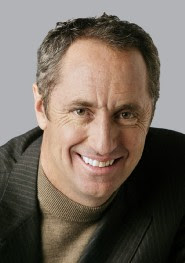 I was reading Rick Reilly's latest column, feeling the same frustration I get when I read all of his columns now. He writes with absolute certainty about a number of things about which I feel you can't be certain: NBA players wanting to play together is bad for the league and for fans, a Christian who refuses to wrestle a girl is a ridiculous travesty, his son is a better person than Kevin Durant because he has less money, Jay Cutler is the worst person in the world, people who play fantasy sports are pathetic losers, players who cause concussions should sit out along with the players they injure, we shouldn't change what we do to help people who have rare allergies, etc.
I was reading Rick Reilly's latest column, feeling the same frustration I get when I read all of his columns now. He writes with absolute certainty about a number of things about which I feel you can't be certain: NBA players wanting to play together is bad for the league and for fans, a Christian who refuses to wrestle a girl is a ridiculous travesty, his son is a better person than Kevin Durant because he has less money, Jay Cutler is the worst person in the world, people who play fantasy sports are pathetic losers, players who cause concussions should sit out along with the players they injure, we shouldn't change what we do to help people who have rare allergies, etc.
I remember I read and enjoyed the book of Reilly's collected columns, Hate Mail From Cheerleaders, a few years back. I breezed right through it without hitting any speed bumps, in fact, I often found myself nodding in agreement, or getting emotionally invested in things that had come and gone ten years earlier. But now I read all of his columns and am struck by how unshakably he'll maintain his confidence even when his opinion is completely wrongheaded. I assumed for a while that it was Reilly who had changed - he's now become grumpier, more biased, more arrogant.
But what if it isn't? Is it possible that in five or six years, when these columns are collected into another book, people will read them and assume that he's totally correct? If we generally agree with someone, will all their opinions seem correct in retrospect if we've mostly forgotten what our own thoghts on the issues were at the time?
I remember reading throught the entire Doonesbury catalog at one point. I loved all of it, especially during the first stretch when they were in college (the strip jumped the shark after their graduation). But I wasn't alive during most of the issues that they were discussing, so Garry Trudeau's opinions on Haldeman or the Iran Contra hearings simply became my own opinions. I didn't have any reason to disagree. Later in life, I would read Trudeau's work in the paper and violently disagree. I assumed at the time that it was Trudeau who had changed. Now, I can't assume that's true.
The lesson here, I suppose, is that in modern life, we're picking up details and opinions from every possible angle. I've heard dozens of people give their opinion on the Carmelo Anthony trade, and I've distilled each of them into my own. But when we read or hear something from the distant - or even not-so-distant - past, our instinct is to accept it at face value. After all, if it's stuck around this long, it must be true. So while we'd never vote for a President based entirely off of one article by a vaguelly credible news source, we'd willingly accept an article that H.G. Wells was a hack and an asshole without blinking.
Apparently, nothing ages so nicely as a well-told lie.
